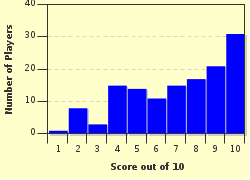Quiz Answer Key and Fun Facts
1. I was born Gordon M. Lightfoot on November 17, 1938, in what rural Canadian town?
2. Gordon Lightfoot's middle initial is M.
What name does the 'M' stand for?
(this name is shared with a t.v. star from the sitcom "Family Ties" as well as a late movie and t.v. star who appeared several times in the original t.v. series "Batman")
3. Gordon Lightfoot's first recorded songs were released on vinyl 45rpm in July 1962. What was the name of the song that reached number three on Toronto's CHUM-AM and top 20 on Montreal's CKGM-AM?
(don't 'forget' this is the song!)
4. Gordon Lightfoot made his debut album in 1966.
The name of his first full length LP was what?
5. Gord's first album had 14 tracks and one of these was called "Ribbon of Darkness". Although Lightfoot wrote this song, he wasn't the first one to record it.
Which country music legend took "Ribbon of Darkness" to number one on the U.S. Country charts in 1964?
6. His final album under his United Artists contract was a live recording. What was the title of Gordon Lightfoot's final album with UA?
7. In 1968, Gordon Lightfoot recorded a protest song called "Black Day in July", which not only was banned from airplay in the United States, but also angered the U.S. Government who ordered the ban.
What incident prompted Gord to write and record the song?
8. Before embarking on his solo career, Gordon Lightfoot teamed up with his friend, Terry Whelan, and recorded an album.
What was the musical name they gave themselves?
(there were only Gord and Terry as musicians)
9. Gordon's first album includes a song called "Pride of Man", written by folk singer, Hamilton Camp. Though Gord's version was more faithful to Camp's style, another band of the era had more success with it.
What is the name of this band?
(It WAS a band and not a delivery company!)
10. "The Way I Feel", Gordon Lightfoot's second album, gave Gord's fans one of the greatest hits of his career. Renowned Canadian author, Pierre Berton, told Gord the song said more than the books he authored, "The National Dream" and "The Last Spike".
What is the name of this Lightfoot classic?
Source: Author
krazykritik
This quiz was reviewed by FunTrivia editor
agony before going online.
Any errors found in FunTrivia content are routinely corrected through our feedback system.

